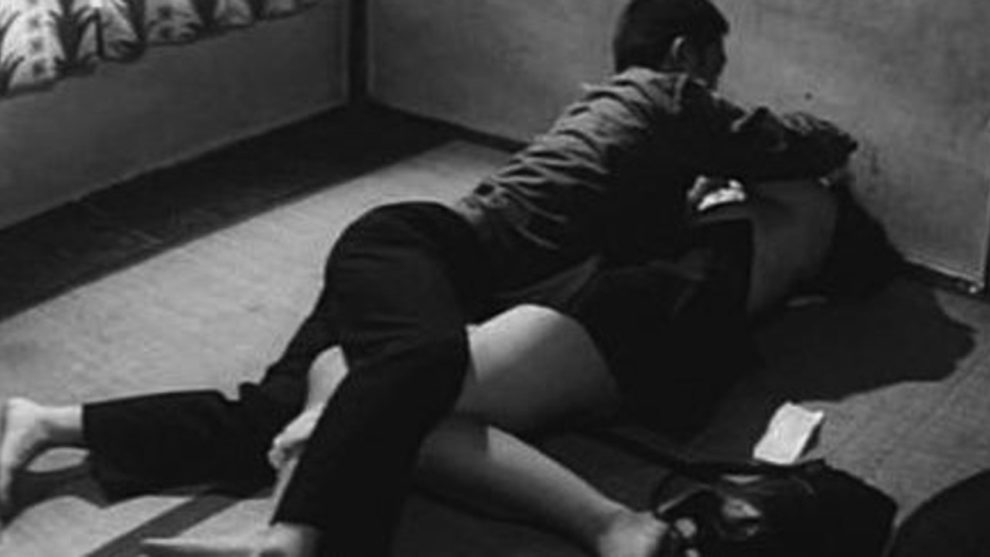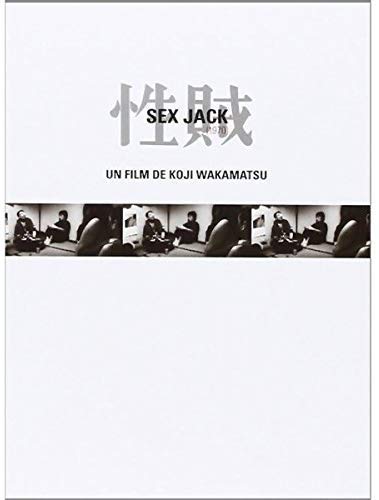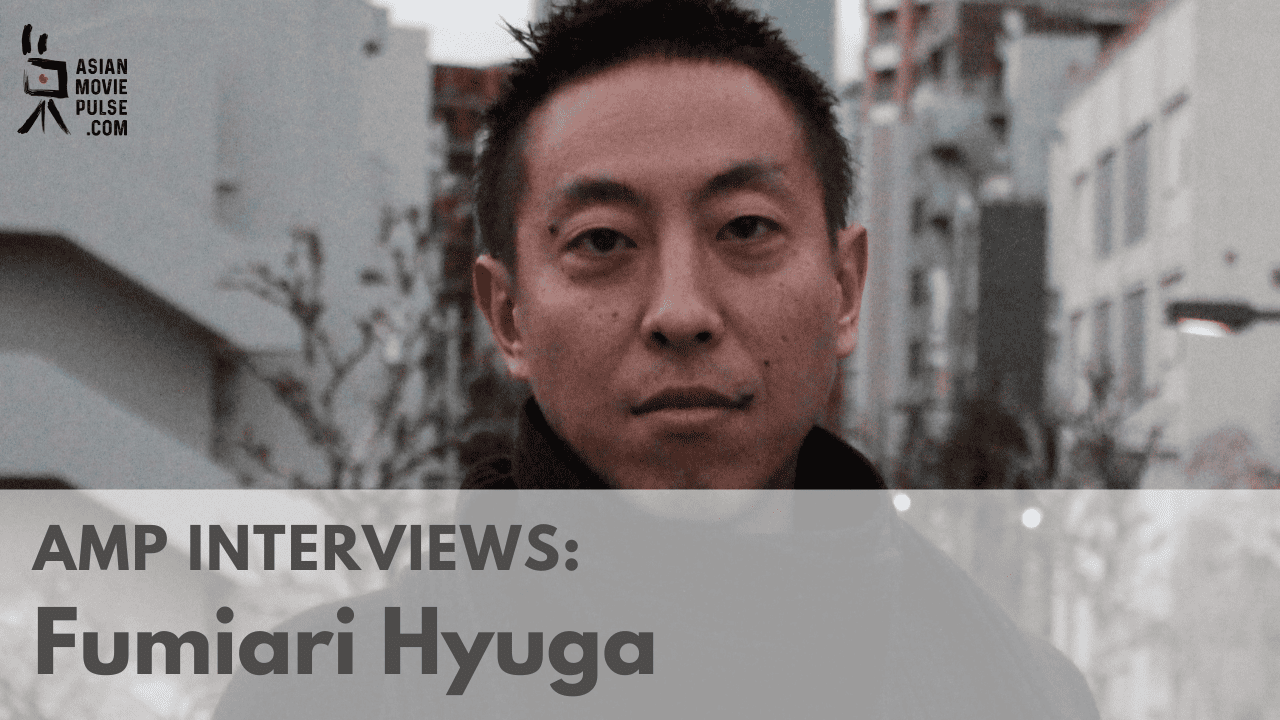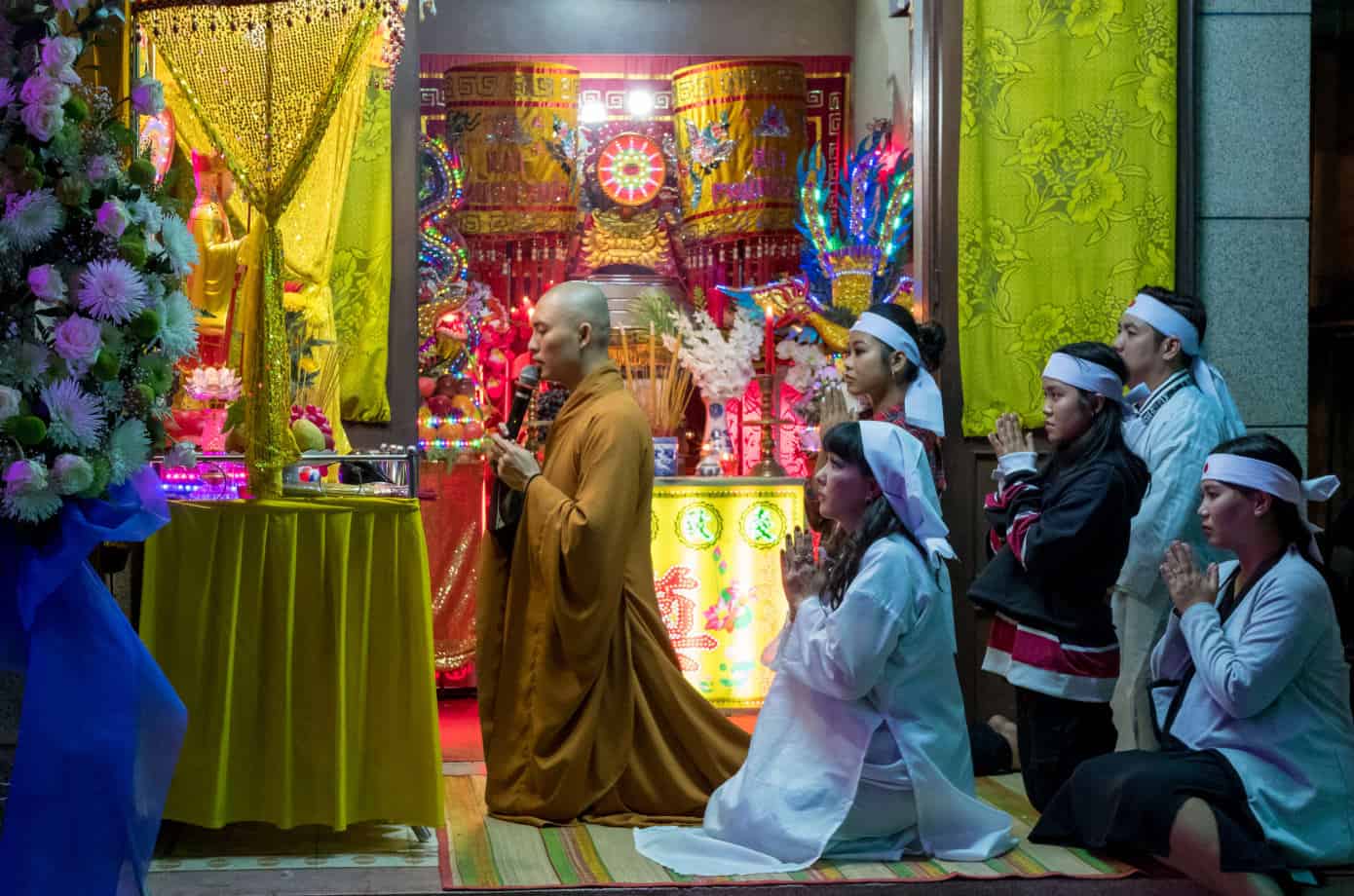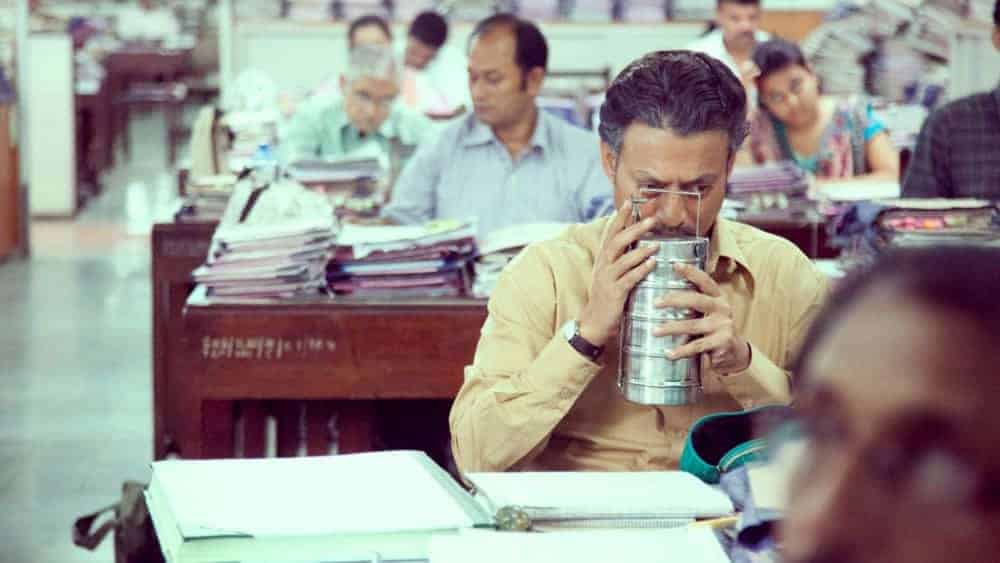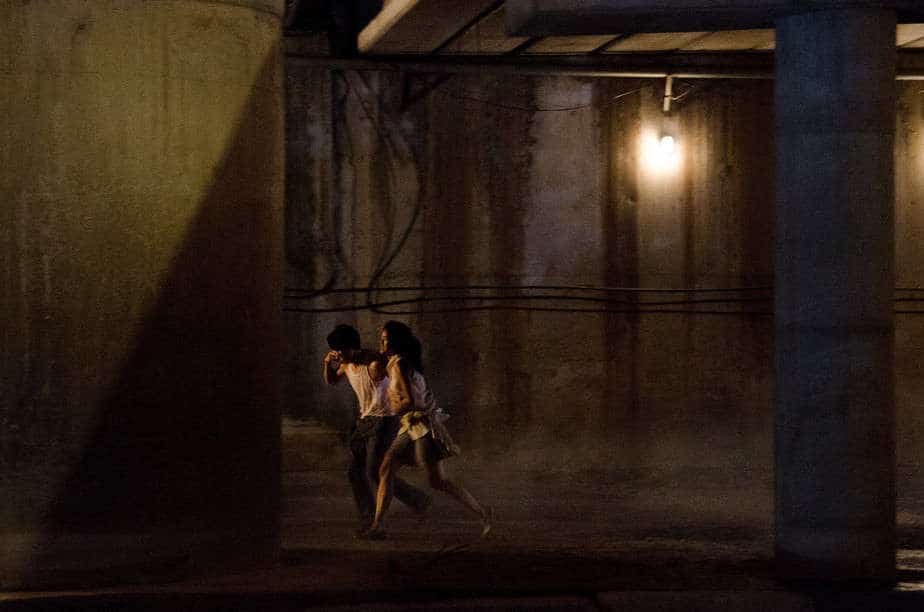By the 70s, and through his cooperation with Masao Adachi, Koji Wakamatsu's films had become rather political, although the exploitation elements of sex and violence were still rather intense. Taking inspiration by the demonstrations against the ANPO treaty and the militarization of a number of factions of students, Wakamatsu begun shooting “Sex Jack” from a script by Adachi, one week before the protests that took place after the new ANPO treaty was signed (14 June 1970). Having information that one of the venues of the ANPO demonstration was Yoyogi Park, near his office in Shinjuku, he went there with his camera and filmed a group of rioters throwing Molotov cocktails at the police. This reportage footage was included in the intro of the film, and actually became a permanent characteristic in Wakamatsu's filmography, as similar footage was included in later films, like “Ecstasy of the Angels”. The film was screened on Director's Fortnight in Cannes in 1971, and caused much controversy, eventually being banned from screening in France.
The rather minimal script revolves around a number of activists, who, after their secret hideaway is destroyed by a police raid of men of the force who have followed a female member, end up hiding in the house of a rather strange looking man, whom initially they perceive as a thief. The dichotomy between the men is quite clear, since the students seem to be more focused on having sex with the only girl of group, despite the fact that political talk and songs are being uttered and sung during intercourse, while the man looks increasingly appalled by their tactics, even if, eventually he succumbs to the temptation of pleasure. After the mystery man is revealed to be an active terrorist who blows up police boxes during the night, the group decide to escalate their actions, and head of to Haneda airport to highjack an airplane to North Korea, in a clear reference to a similar event instigated by the Red Army Faction on March 30 of the same year.
The almost opposing attitudes towards both films and the politics of the era by Wakamatsu and Adachi become quite evident here, with the latter being a true anarchist who wanted to implement his political ideas through film, and the former taking a more opportunistic approach, essentially exploiting the then current affairs to make his films more appealing, a tactic that also includes the plethora of sex scenes in the movie, but also the many attacks towards police officers. The result, however, as in almost every collaboration of the two, is impressive in its antithesis, as the hard-core political comments are juxtaposed with varying ways of exploitation, in a film that actually succeeds in both.
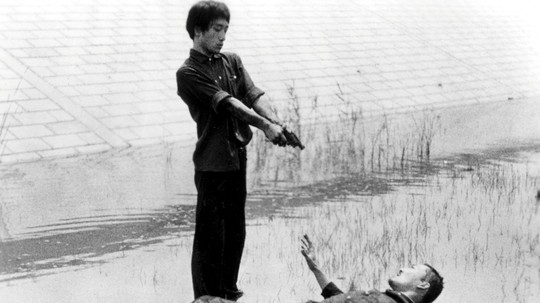
Furthermore, both seem to have an ironic stance towards the student activists, which are presented as sexually insane caricatures, whose connection with any revolutionary activities is more of a whim than an actual life stance, with conversations and the singing that take place during the movie highlighting the fact in the most eloquent manner. Furthermore, their constant comparison with the true terrorist in the group intensifies this comment even more, particularly due to his actions during the time they just have sex and discuss, with the rather bloody, action-filled finale cementing this approach.
The narrative takes a repetitive form after the initial scenes, with sequences of sex giving their place to ones of violence and vice versa, with the latter being directed both against the police and each other. In that regard, Genki Nakajima does a rather good job with the editing, essentially giving a sense of movement to an otherwise pretty static film, while the fusion jazz and Rock'n'Roll music by Ongakushu-daneizou adds elements of tension, that also work quite well for the film. Hideo Ito's monochrome cinematography adds to the claustrophobic sense the story emits, while also highlighting how the freedom the students believe to have, is nothing but an illusion.

Once more in a Wakamatsu film, “Sex Jack” is difficult to watch, both for its no punches-pulled approach to the acts of terrorism and its rather graphic sex scenes, which occasionally look too much like rape. At the same time, however, there is also much philosophical and political context here, and the film becomes rather interesting when watched from this perspective, particularly to the viewer who has knowledge of the historic-political setting of the era.


